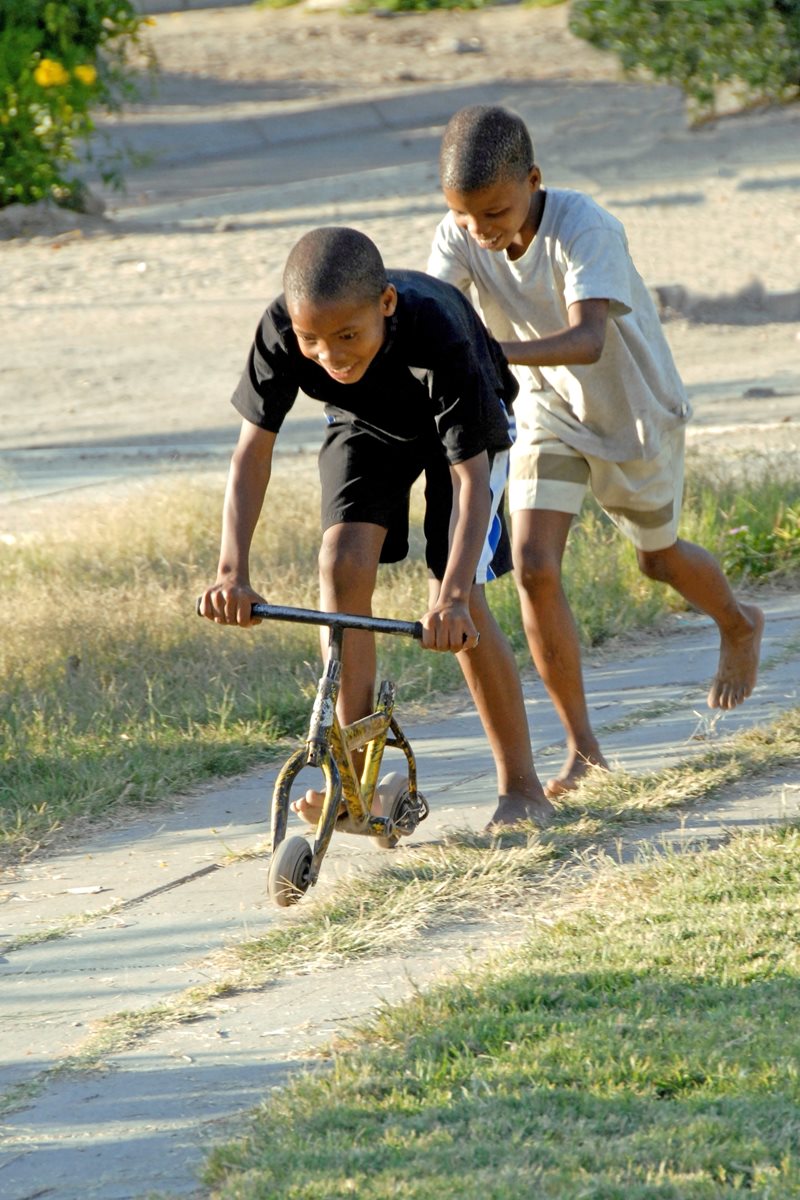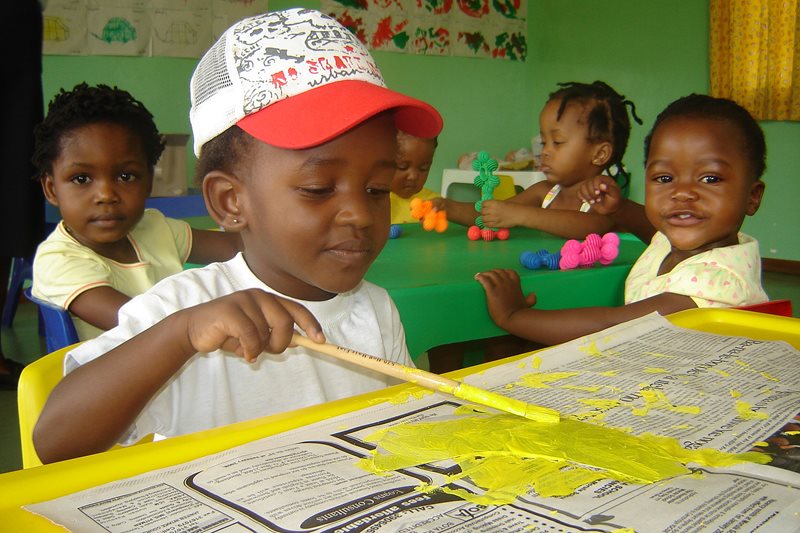HIV/AIDS casts its shadow over the otherwise prospering city of Francistown

Francistown was founded as a centre for gold mining and railway transportation more than a century ago. Today, the gold mines are abandoned but mining for other natural resources remains an important economic factor for Francistown. Francistown is positioned in the north-east of Botswana and with a population of more than 80,000 it is the second largest city in the country.
Francistown functions as a main transport connection point for the north of the country, and many travellers who visit the country’s national park pass through the city. The social infrastructure of Francistown is generally good, but HIV/AIDS is a major challenge and a threat to the health and stability of many families.
SOS Children’s Villages supports local initiatives to give vulnerable children in Francistown better prospects for the future
Many parents and carers who are affected by HIV/AIDS struggle to support and care for their families, and thousands of children have lost both parents as a consequence of HIV/AIDS. Thus, it is crucial to provide support for orphaned children and children from HIV/AIDS-affected families so that they may experience the same opportunities for education and individual development as other children in Botswana.
SOS Children’s Village Francistown cooperates closely with local authorities in order to strengthen existing community-based support systems for orphaned and vulnerable children. In most cases, it is best for children to grow up in the family into which they were born, and therefore our work in Francistown increasingly focuses on supporting local families at risk of breaking apart. We do this by looking at both the needs of the children and the parents’ or caregivers’ in these families. The acquisition of job skills and knowledge about child care and children’s rights are important factors to help parents and caregivers to better care for their families.
What we do in Francistown

Strengthening families: Our social centre in Francistown is specialised in supporting HIV/AIDS-affected families and works to ensure that the children have access to medical treatment and schooling. Families are also helped with psychological guidance and counselling on how best to care for their children. Parents and carers benefit from courses and training which empower them with job skills that make it possible for them to better provide for their families. The psychological well-being of children from these vulnerable families is extremely important for their development. Therefore, SOS Children’s Villages undertakes different measures and activities together with local partners in Francistown to support these children and provide them with the opportunity to experience moments of just being a child.
Care in families: 16 SOS families have been providing children who have lost parental care with a loving home since 1998. In an SOS family, children can grow up together with siblings in a family environment, and they have access to education or vocational training. A development plan is made for each child in order to prepare them in the best possible way to become independent and responsible young adults.
Support for young people: When the children in our care become adolescents, they usually move into one of our youth homes in Francistown. Here they live together with other young people from SOS families in semi-independence under the guidance of a youth and educational counsellor. Still fully supported by SOS Children’s Villages, these young people complete their education or vocational training while they participate in different activities that help them to become fully independent.
Education: SOS Children’s Villages runs a kindergarten in Francistown, where up to 100 children from SOS families as well as children from the local community are looked after by professional staff. In safe surroundings, the children can play and build happy memories while also being introduced to, and prepared for, daily life in a school class.